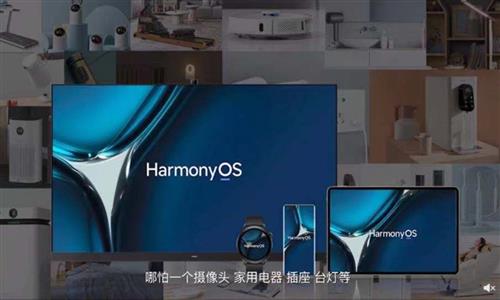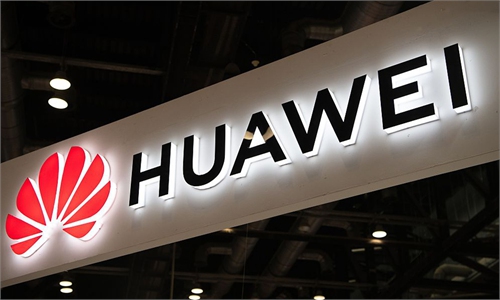China's homegrown operating system sees rapid development as US' tech assault backfires
US curbs, ‘decoupling’ attempts inspire China’s tech breakthroughs

Photo:VCG
Recently, operating systems developed by major Chinese players have consolidated marked progress toward becoming globally competitive. The HarmonyOS 4, an operating system developed by Chinese technology giant Huawei, was revealed at its annual developer conference held on August 4, with the company announcing multiple upgrades including ChatGPT-liked AI assistant and new Huawei Ark Engine.
In addition, the general-purpose CPU 3A6000 developed by Chinese major chip maker Loongson and its Loongson Instruction Set Architecture have passed adaption tests with multiple operating systems from Chinese technology companies, which means electronic devices equipped with both China-made CPUs and operating systems are becoming increasingly sophisticated.
An operating system is the cornerstone of information technology, supporting construction and operation of almost all digital infrastructure. With most commonly used desktop operating systems monopolized by foreign developers, some Chinese companies have started to worry about whether the adaption of these operating systems could be used as a tool for foreign forces to assault China's economy.
China's policymakers and capital market have realized the importance of domestically developed operating systems in tandem with offering sufficient policy and financial supports, aiming to accelerate the independent development of the domestic operating systems amid growing market demand while tackling external headwinds.
On the right track
Xiang Ligang, director-general of the Beijing-based Information Consumption Alliance, told the Global Times on Wednesday that Chinese companies have overcome nearly all technological barriers for building their own operating systems and have made remarkable achievements embodied by the HarmonyOS and China's first open-source desktop operating system, openKylin 1.0, launched by its developer Kylinsoft on July 5 this year.
The operating systems of the Kylin series, including openKylin, are available for computers and mobile phones. The openKylin app store offers some 1,000 third-party software options, to meet various customer demands in terms of work, life, entertainment and programming, according to Kylinsoft.
According to the company's official social media account, its Kylin operating system series has been applied in sectors including government administration, finance, communications, energy, transport, healthcare and education, as well as in China's aerospace programs.
Responsible Chinese authorities have granted corresponding support. Shenzhen in South China's Guangdong Province, the base of Huawei's head office, unveiled a development plan on July 31 in a bid to enlarge the utility of the HarmonyOS and the EulerOS, two operating systems developed by Huawei across multiple industries.
The plan vowed to fully upgrade Shenzhen's operating system industry by addressing all "bottleneck" issues and promote the HarmonyOS and the EulerOS to catch up the global leading systems.
Homegrown system
By 2025, the number of devices installed with the HarmonyOS and the EulerOS systems should reach one billion in the Chinese market. The plan also proposed to promote relevant cooperation with the two Chinese operating systems to the BRICS economies and countries along the China-proposed Belt and Road Initiative.
There were some operating system products before the HarmonyOS and Kylin series, all of which failed or were shut down due to lack of a user base, Ma Jihua, a Beijing-based senior industry analyst, told the Global Times on Wednesday, noting that supports from responsible authorities and enterprises are necessary and helpful for the development of China's homegrown operating systems.
"On the one hand, some government agencies and domestic enterprises have opted to use self-developed operating systems for security concerns. On the other hand, the application of domestic systems could allow users to test their performances, which is conducive to extend the adaption for ordinary users," said Ma.
China's Ministry of Finance on Monday released a draft to solicit public comment on targeting standards for the governments' purchase of portable computers and operating systems. Industry insiders said the move marked strong support from the government officials, who seek alternatives to avoid "bottlenecks" and potential security risks for the core technology.
"The swift boat has already sailed through thousands of hills," Yu Chengdong, executive director and CEO of the Consumer BG, said during the annual developer conference as he cited an ancient Chinese poem to illustrate the BG's rosy future.
'Pressure is power'
Yu noted that the number of devices equipped with HarmonyOS had reached 700 million. Analysts noted during the unveiling of HarmonyOS 4 shows that the US' intensifying crackdown on the Chinese tech giant has already failed.
The launch of openKylin 1.0 last month was seen as the country's latest effort in developing homegrown software to reduce reliance on Western technology.
Chinese operating systems are considered key to serving as a pillar for driving construction of new infrastructure and boosting development of the digital economy. However, Windows from Microsoft and MacOS from Apple are still dominating Chinese operating system market at present.
Over the recent decade, multiple popular operating systems didn't see revolutionary technological upgrade, which offered sufficient time for Chinese developers to catch up on the latest technology, said Ma.
"China's research progresses of cutting-edge products, such as chips and operating systems, are results of the country's technological accumulation, and success will follow," he noted, pointing out that the US' curb in technology sector and the so-called plot of "decoupling" has accelerated China's progress.
According to data from China's Ministry of Industry and Information Technology, China's software industry realized 5.52 trillion yuan ($756.55 billion) in the first half of 2023, increased by 14.2 percent year-on-year, and the revenue of embedded system software reached 466.7 billion yuan, up 14 percent year-on-year, showing upbeat signs amid tough times.
Xiang said that China's locally built operating systems represent reliable alternatives. "China has a large consumption market and numerous application scenarios to support the operation of one or two outstanding homegrown operating systems," he said.



